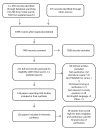Psychosocial factors that shape patient and carer experiences of dementia diagnosis and treatment: a systematic review of qualitative studies
- PMID: 23118618
- PMCID: PMC3484131
- DOI: 10.1371/journal.pmed.1001331
Psychosocial factors that shape patient and carer experiences of dementia diagnosis and treatment: a systematic review of qualitative studies
Abstract
Background: Early diagnosis and intervention for people with dementia is increasingly considered a priority, but practitioners are concerned with the effects of earlier diagnosis and interventions on patients and caregivers. This systematic review evaluates the qualitative evidence about how people accommodate and adapt to the diagnosis of dementia and its immediate consequences, to guide practice.
Methods and findings: We systematically reviewed qualitative studies exploring experiences of community-dwelling individuals with dementia, and their carers, around diagnosis and the transition to becoming a person with dementia. We searched PubMed, PsychINFO, Embase, CINAHL, and the British Nursing Index (all searched in May 2010 with no date restrictions; PubMed search updated in February 2012), checked reference lists, and undertook citation searches in PubMed and Google Scholar (ongoing to September 2011). We used thematic synthesis to identify key themes, commonalities, barriers to earlier diagnosis, and support identified as helpful. We identified 126 papers reporting 102 studies including a total of 3,095 participants. Three overarching themes emerged from our analysis: (1) pathways through diagnosis, including its impact on identity, roles, and relationships; (2) resolving conflicts to accommodate a diagnosis, including the acceptability of support, focusing on the present or the future, and the use or avoidance of knowledge; and (3) strategies and support to minimise the impact of dementia. Consistent barriers to diagnosis include stigma, normalisation of symptoms, and lack of knowledge. Studies report a lack of specialist support particularly post-diagnosis.
Conclusions: There is an extensive body of qualitative literature on the experiences of community-dwelling individuals with dementia on receiving and adapting to a diagnosis of dementia. We present a thematic analysis that could be useful to professionals working with people with dementia. We suggest that research emphasis should shift towards the development and evaluation of interventions, particularly those providing support after diagnosis.
Conflict of interest statement
CB is a member of the Editorial Board of
Figures



References
-
- Alzheimer's Disease International (2009) World alzheimer report 2009. London: Alzheimer's Disease International. Available: http://www.alz.co.uk/research/files/WorldAlzheimerReport.pdf. Accessed 18 September 2012.
-
- Alzheimer's Disease International (2010) World alzheimer report 2010: the global economic impact of dementia. London: Alzheimer's Disease International. Available: http://www.alz.co.uk/research/files/WorldAlzheimerReport2010.pdf. Accessed 18 September 2012.
-
- Boustani M, Peterson B, Hanson L, Harris R, Lohr KN (2003) Screening for dementia in primary care: a summary of the evidence for the U.S. Preventive Services Task Force. Ann Intern Med 138: 927–937. - PubMed
-
- Banerjee S, Chan J (2008) Organisation of old age psychiatric services. Psychiatry 7: 49–54.
Publication types
MeSH terms
Grants and funding
LinkOut - more resources
Full Text Sources
Other Literature Sources
Medical

